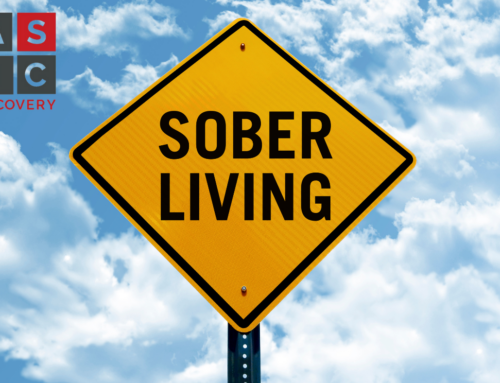While most people are familiar with Alcoholics Anonymous (AA), its “sister program” Al-Anon is much less well known, and because the name is so similar (Al-Anon just seems like a shortened way of saying Alcoholics Anonymous), many people don’t even realize that they’re separate programs.
While both programs are based around the 12 Steps, their focuses (who they’re for, what they’re designed to help with) are very different.
Al-Anon is a worldwide fellowship that offers a program of recovery for the families and friends of alcoholics and addicts, whether the alcoholic/addict recognizes their alcoholism or not.
It was started in 1951 by Lois Wilson, wife of AA co-founder Bill Wilson, to create a supportive environment where anyone can speak with other family members or friends of alcoholics/addicts who have gone through the same struggles as they have — and have found a way to deal with them effectively.
Al-Anon, just like AA, is focused on anonymity, ensuring that your personal details are kept confidential. This allows you to open up without fear of judgment or criticism or having to worry that someone in your personal or professional life will learn about your struggles.
Their meetings are completely free, just like AA, and they are run by other members, not by professionals or counselors.
How Al-Anon Helps You Break Free
Living with an alcoholic can be incredibly challenging, is often dangerous, and tends to make the person with the addiction the sole focus of everyone’s lives.
Everyone is constantly thinking about, worrying about, or dealing with the addict/alcoholic and their out-of-control behavior, emotions, attitudes, and actions, never knowing when the other shoe is going to drop.
Family members and friends suffer heavily as a result. Many of them become heavily codependent on the alcoholic/addict, enabling their behavior because they are afraid of losing them.
It’s this codependency that Al-Anon addresses. Its goal is to help family members who have become spiritually sick as a result of dealing with the alcoholic/addict to break free of their own addiction to these people.
Al-Anon is a safe place for you to express your feelings, fears, and frustrations, a place filled with people who can show you that you’re not alone in your struggles and that your feelings are valid.
Another thing that Al-Anon does is to encourage you to focus on yourself, promoting self-care and self-respect. This shift in focus can be incredibly freeing, allowing you to regain control over your own life, stop enabling the addict/alcoholic, and, if necessary, leave them entirely or cut them off.
Basically, Al-Anon equips you with the tools you need to cope with the effects of alcoholism and/or drug addiction on your family. By sharing experiences, you can learn practical strategies to deal with common issues.
Whether it’s learning how to set healthy boundaries or finding ways to communicate effectively with your alcoholic/addict loved one, Al-Anon provides invaluable support in figuring out how to deal with situations that often feel overwhelming and impossibly broken.
Changing How You Deal with Life
The Al-Anon journey is not merely about surviving — it’s about completely transforming your life. As you attend meetings, listen to others’ stories, learn to set boundaries, and take the 12 Steps, you will inevitably start to see changes within yourself.
These changes often manifest as increased acceptance and serenity of the situation paired with the courage you need to maintain boundaries, hold the addict/alcoholic accountable, and live your life the way you want to — not the way they want you to.
Getting involved in Al-Anon helps you to understand the nature of alcoholism and its impact on your loved one. It helps you to realize a difficult and important fact — you cannot control or cure their addiction. This allows you to let go of misplaced guilt or responsibility, leading to a profound sense of relief.
On top of that, the Al-Anon and the 12 Steps can help you learn acceptance — of your loved one’s addiction, of their journey toward recovery (or lack thereof), and most importantly, of your own feelings, needs, and desires. This acceptance paves the way for personal growth and transformation.
Throughout all of this, you’ll begin to get something you might not have had for a very long time — serenity. You’ll discover a sense of peace, even if your loved one is still deep in their addiction.
You’ll learn to differentiate between what you can change (your reactions and behavior) and what you can’t (your loved one’s addiction). This is extremely empowering — you’ll no longer be wasting time and energy on a battle you can never win.
Attending Your First Al-Anon Meeting
Going to your first meeting can be intimidating, but if you’ve gotten to the point where you don’t know where to turn, you might not have many other options, and a little awkwardness at first is worth going through to get the help you need.
Remember that everyone in the meeting was once in your shoes, feeling uncertain and scared. They all know what you’re going through, so they’re going to be very supportive and welcoming.
At most meetings, after some introductory material explaining what Al-Anon is, how it works, and possibly some group announcements, people will share their experiences dealing with the alcoholic/addict in their lives and how they dealt with them in a healthy way.
The goal here is for members who have gone through the process to help newcomers like you see that there’s light at the end of the tunnel, that there’s a way out.
You’re not required to share if you don’t feel comfortable — listening is totally fine. However, if you want to just briefly introduce yourself, that’s fine too.
That also helps the members to know that you’re new so that they can give you their contact information and pamphlets or books about the program.
Over time, as you attend more meetings, you’ll become more comfortable. You’ll start identifying with the shared experiences and may even find the courage to share your own story. Eventually, you may want to get a sponsor and go through the 12 Steps yourself.
Remember, there’s no right or wrong way to participate in Al-Anon. The journey is unique to each person, so take your time and go at your own pace. You’ll be glad you did.
IOP at ASIC Recovery
Are you looking for addiction treatment in Texas for your loved one? At ASIC Recovery, our Intensive Outpatient Program (IOP) is dedicated to helping people develop healthier coping skills and build a supportive recovery network.



